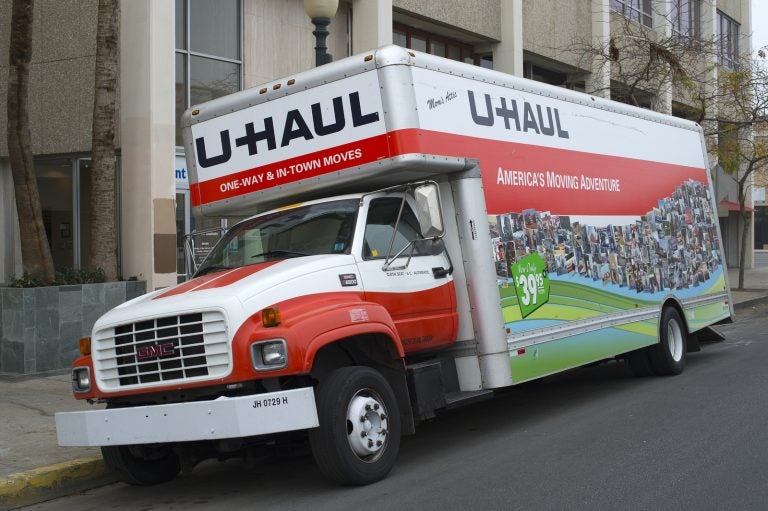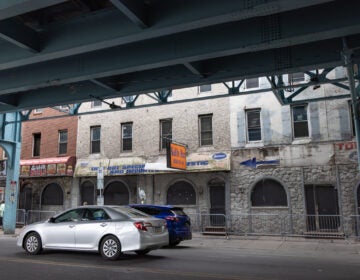Why do people leave Philly? First-of-its-kind study offers answers
We all have ideas about why people leave Philadelphia. A new study from the Pew Charitable Trusts puts numbers behind the anecdotes.

(Bike Tourist/BigStock)
Why do people leave Philadelphia?
Jobs? Crime? Schools?
The answer: Yes.
That’s what the Pew Charitable Trusts found when it surveyed 1,000 people who left the city in 2018.
Departing Philadelphians listed five main reasons for leaving. They were, in order: job opportunities, crime and safety, cost of living, better schools for their children, and housing. But there was no “dominant” reason, Pew concluded.
The results swung significantly based on the type of person leaving Philly.
Those ditching the city for the nearby suburbs were more likely to discuss quality-of-life measures, such as schools and safety. People moving out of the Philadelphia region generally left because of job opportunities or the chance to be near family.
“Results varied quite a bit depending on who you were talking to,” said Larry Eichel, Director of the Philadelphia Research Initiative at the Pew Charitable Trusts.
The first-of-its-kind survey provides hard numbers to a topic Philadelphia officials often debate: how to best keep people (and taxpayers) in the city.
More people are moving out than in
Like many major American cities, Philadelphia loses about 10,000 more “domestic” migrants each year than it attracts. The city’s overall population has nudged upward, thanks to immigrant arrivals and a birth rate that exceeds its death rate.
“The net domestic outflow is smaller than it was 10 or 20 years ago,” said Eichel. “But it’s still there.”
And it seems relatively stable.
In 2018, according to Census estimates, 11,315 more people left Philadelphia for other American cities than arrived from other American cities. That number was about the same five years earlier, in 2013.
Pew’s study is aimed at helping people figure out why.
“There’s nothing terribly alarming or surprising about these findings,” said Jeff Hornstein, executive director of the Economy League of Greater Philadelphia. “Churn is normal.”
Hornstein considers Pew’s research a good starting point for future studies on this topic.
There hasn’t been a study like this in the past, said Eichel. It’s impossible to know if one of the factors causing people to move has become more or less prominent over time.
Future researchers, though, will now have something to reference.
“It’s a useful baseline they’ve produced,” said Hornstein. “It will be interesting to see how it changes over time.”
Other notable takeaways
There are also some notable insights buried in the study’s demographic breakdowns:
- Those who left Philadelphia for another part of the country overwhelmingly cited jobs as their reason for leaving (44%)
- Those who left Philadelphia for another part of the region cited schools (20%), crime (19%), and housing (17%) as the primary reasons.
- Movers are disproportionately young. About half are between 18 and 34.
- People with with school-aged children most often cited schools as they reason they left (31%). No surprise there. But that demographic is a fairly small one. About eight in ten households that moved out of Philly didn’t have school-aged kids.
- The plurality of movers with a college degree or higher said they left because of job opportunities (36%). For folks with a high school diploma or less, crime and safety (23%) and schools (14%) were the leading causes cited.
- Sometimes there’s conflicting feedback within a category. On schools, for instance, one mover told Pew that the family left Philadelphia because their oldest “did not get into any charter schools.” Another mover said the family wanted their son to go to “a better school district … I refuse to do private/charter schools for philosophical reasons.”
- Most people who leave Philadelphia still like it. About 7 in 10 movers described the city as a “good or excellent place to live.” Non-Philly natives were more likely to leave town with fond feelings for the city. By contrast, half of native Philadelphians did not give the city high marks as they departed.
Pew identified and contacted movers through postal records, said Eichel. It weighted its survey results based on the demographics of respondents and the demographics of those who leave Philadelphia in a given year.
The survey has a margin of error of 4.6 percentage points.
WHYY is your source for fact-based, in-depth journalism and information. As a nonprofit organization, we rely on financial support from readers like you. Please give today.







